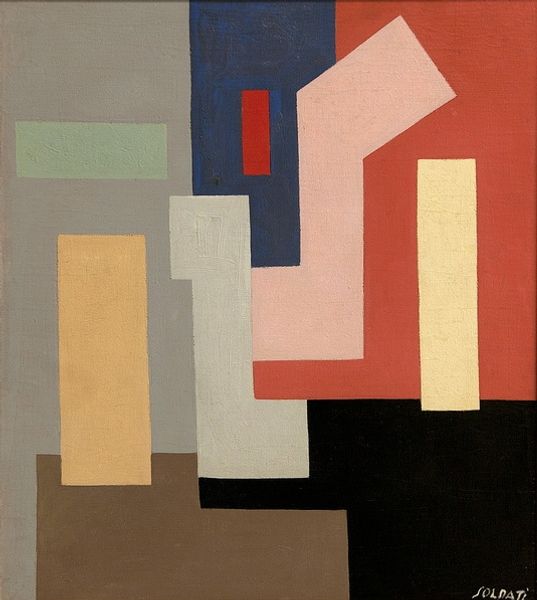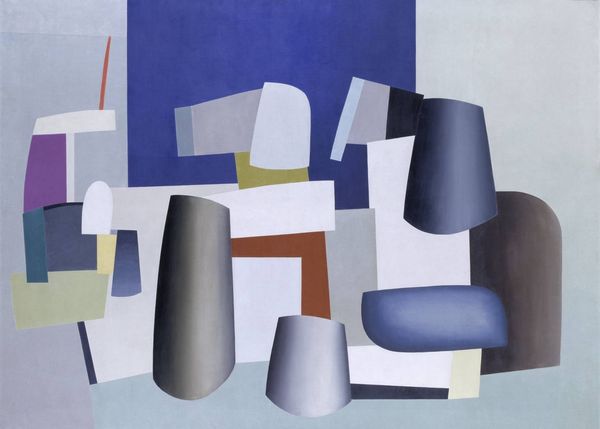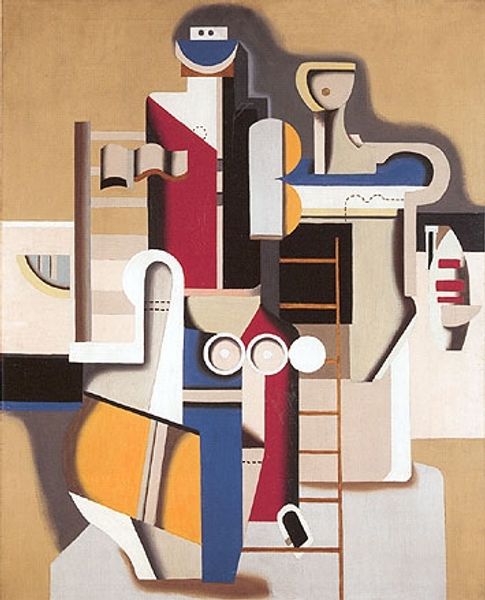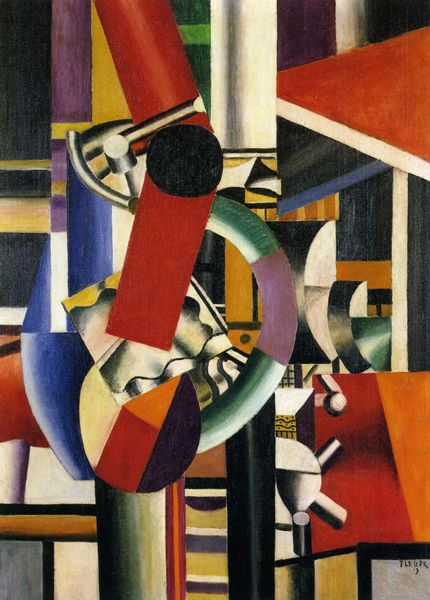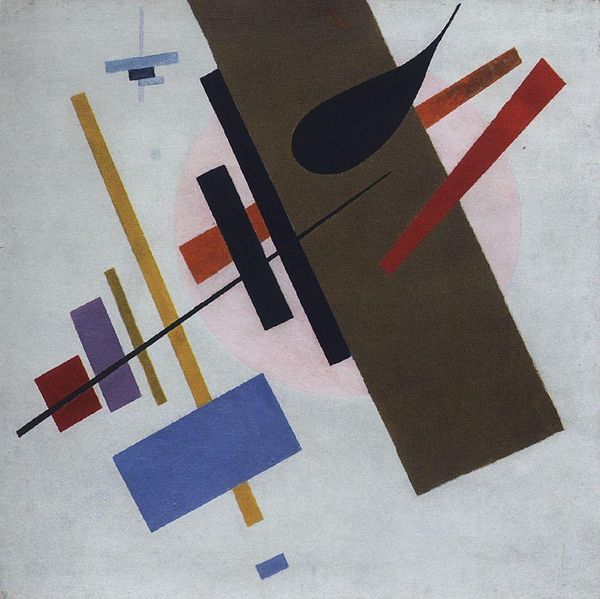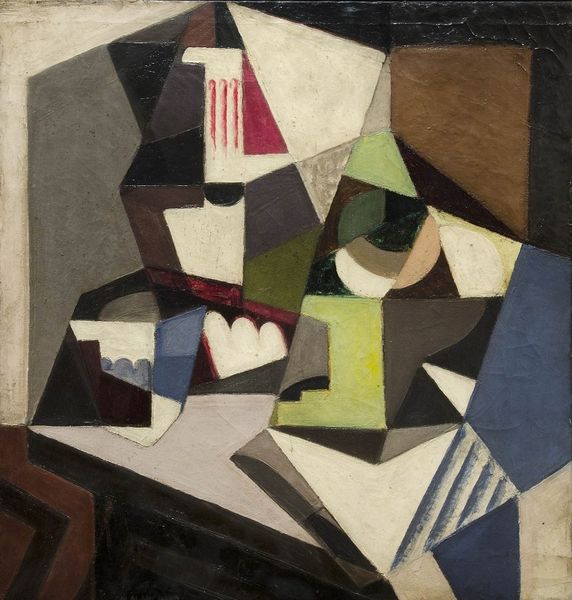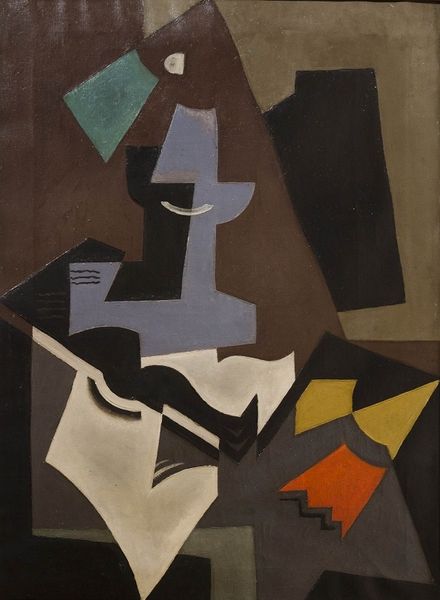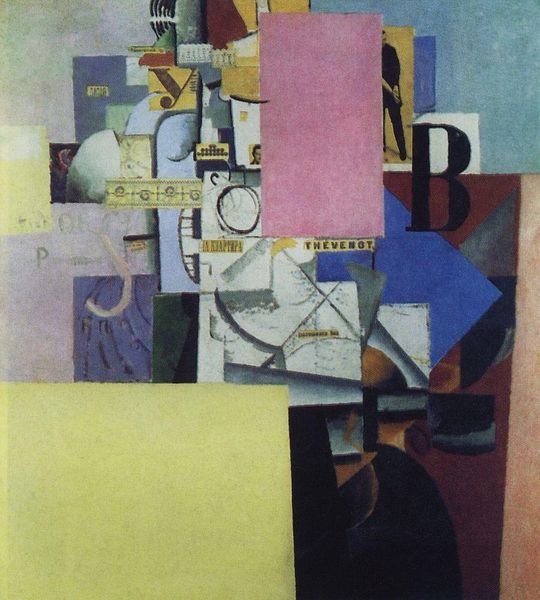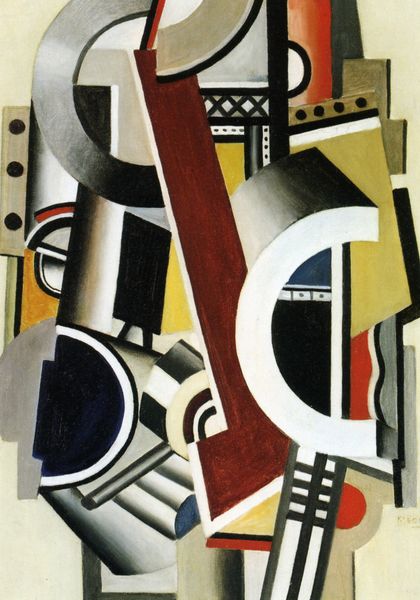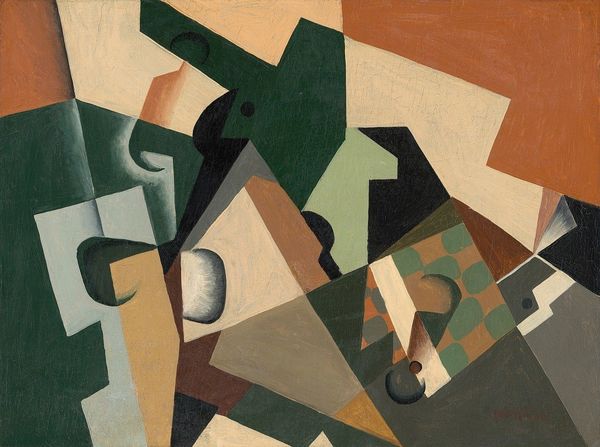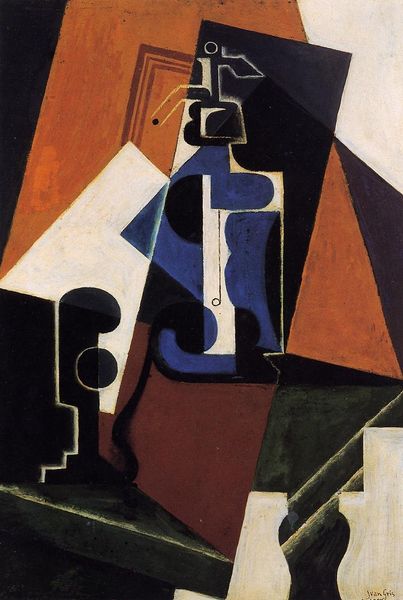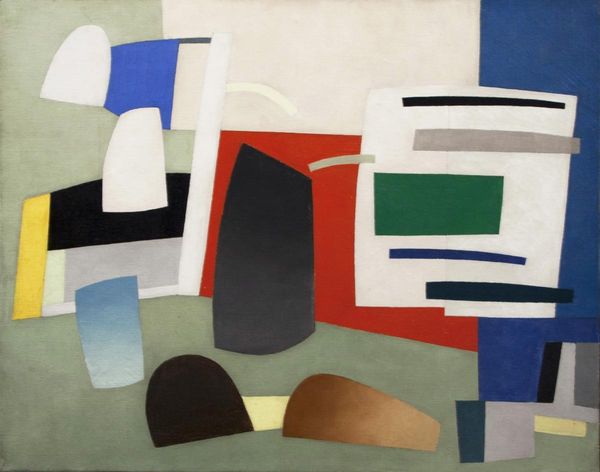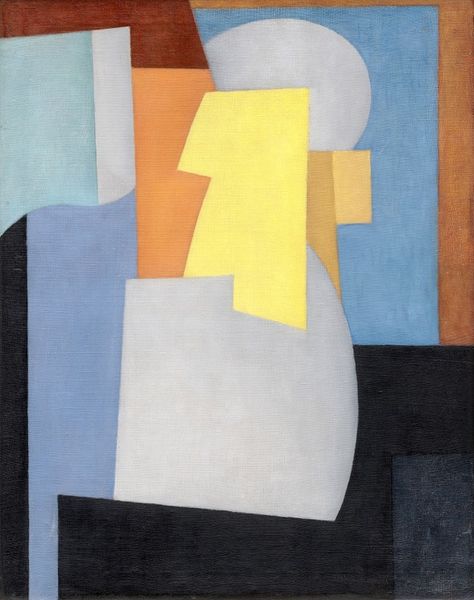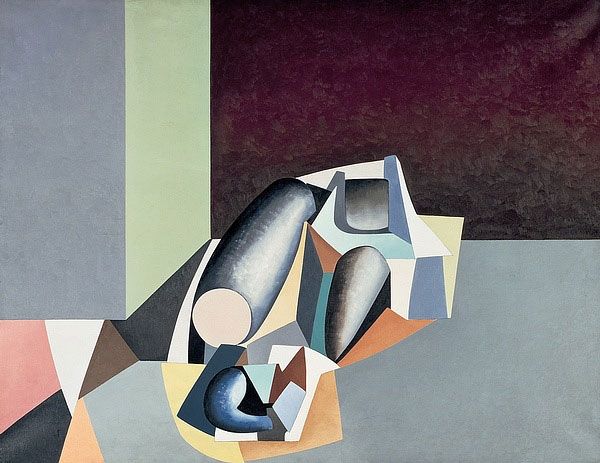
painting, oil-paint
#
cubism
#
painting
#
oil-paint
#
form
#
geometric-abstraction
#
abstraction
#
modernism
Copyright: Jean Helion,Fair Use
Editor: This is Jean Helion's "Abstraction," created in 1934 using oil paint. It's striking how solid and almost architectural the shapes feel, despite being totally abstract. How do you see this piece, especially considering its place in the development of abstract art? Curator: I see a careful negotiation of materials and their potential. The very *making* of this work speaks to the social and economic forces shaping art production in the 1930s. Think about the paint itself – its availability, cost, and the techniques Helion employed. What kind of labor was involved in preparing these materials? Editor: That’s interesting! I hadn't considered the actual production of the materials themselves. I was focusing more on the composition, but that makes me think about how industrial processes might have influenced his choice of these hard-edged forms. Curator: Exactly! Consider the potential influences of mass production and industrial design on Helion's aesthetic. Are we looking at purely abstract forms, or are they reflections of the material world transformed by industrialization? What do these shapes evoke in you? Editor: They make me think of building blocks, or maybe machine parts, simplified and rearranged. I suppose I was stuck on "art for art's sake," but now I see how much the material conditions matter. Curator: And by exploring the materiality, we also challenge that "art for art's sake" notion, seeing instead how art is always embedded within, and responding to, its world. That, in itself, is liberating. Editor: I'm definitely looking at abstract art with new eyes now. It's much more grounded in reality than I previously thought. Curator: Precisely. By engaging with its making and consumption, abstraction ceases to be purely formal and instead becomes deeply cultural.
Comments
No comments
Be the first to comment and join the conversation on the ultimate creative platform.
